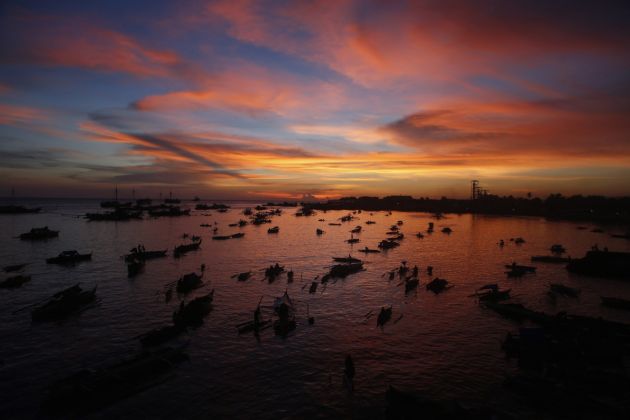At least 27 killed in bomb blasts around church in the Philippines

At least 27 people have been killed and dozens injured after two bombs were detonated in a cathedral in the Philippines as Sunday mass was being celebrated and churchgoers were praying.
According to military personnel, the first bomb was detonated inside the Our Lady of Mount Carmel cathedral in Jolo, Sulu province on Mindanao Island in the country's south, just after 8am.
As soldiers responded, a second device was detonated in the car park, the BBC reported.
The explosions came just after a landmark vote to form a Muslim autonomous region here following decades of unrest, The Washington Post reported.
The World Council of Churches strongly condemned "the vicious attack on worshippers" on the southern Philippine island of Jolo.
WCC general secretary Rev. Olav Fykse Tveit expressed profound sorrow and offered condolences and prayers for the families of the victims, for the wounded and for all the people of Philippines.
"In the face of this brutality, the human family, all people of faith and of good will, must stand together to recommit to respecting and caring for one another, to protecting one another, and to preventing such violence," Tveit said.
The blasts underscore how elusive peace remains in the southern Philippines, where Muslim extremist groups such as Abu Sayyaf and others linked to the Islamic State have long wreaked havoc in the Catholic-majority country, said the Post.
Philippine Defense Secretary Delfin Lorenzana said the attackers used two improvised explosive devices and they occurred about 8:15 a.m.
No group has so far said it was behind the attack, but Jolo has long been a base for militants including those of the Abu Sayyaf group.
The attack comes days after a majority-Muslim area in the region voted for greater autonomy in the referendum they held the BBC said.
Defense Secretary Delfin Lorenzana called the attack a "dastardly act" and urged the local population to work with the authorities to "deny terrorism any victory."
"We will use the full force of the law to bring to justice the perpetrators behind this incident."
In last week's referendum, voters approved the creation of the Bangsamoro Autonomous Region in majority-Muslim areas of southern Philippines.
But voters in Sulu province, where Jolo is located, rejected it.
The referendum followed a peace deal between the government and the Moro Islamic Liberation Front (MILF).